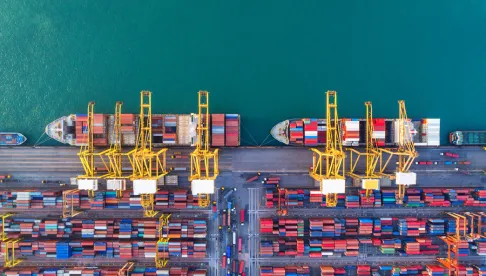On December 4, 2018, President Trump signed into law the Frank LoBiondo Coast Guard Authorization Act of 2018, which includes as Title IX the Vessel Incident Discharge Act of 2018 (“VIDA”). Among other things, VIDA repeals the United States Environmental Protection Agency’s (“EPA”) 2014 Small Vessel General Permit (“SVGP”), amends the Clean Water Act to establish “Uniform National Standards for Discharges Incidental to Normal Operation of Vessels,” and authorizes the EPA to promulgate new regulations to establish federal standards of performance for marine pollution control devices for each type of discharge incidental to the normal operation of covered vessels, including ballast water and graywater. The new regulations will replace the EPA’s 2013 Vessel General Permit (“VGP”). The EPA has two years to promulgate the new regulations, and the United States Coast Guard will administer and enforce the new regulations.
The Coast Guard and the EPA currently regulate ballast water management and discharges with states regulating the quality of their waters. Vessel incidental discharges are currently regulated by the EPA’s 2013 VGP program and were also regulated by the EPA’s 2014 SVGP program. Various temporary exemptions were passed by Congress for small vessels (i.e., vessels less than 79’ in length) and fishing vessels (other than for ballast water). Various states also passed laws regulating discharges from vessels. The present system has created a confusing regulatory scheme for commercial vessel owners.
Regulations to be developed under VIDA will replace the 2013 VGP program and the current Coast Guard ballast water management rules. VIDA will continue to exempt recreational vessels, small vessels and fishing vessels (except for ballast discharges). VIDA generally prohibits state and local authorities from adopting or enforcing any regulations related to vessel incidental discharges unless identical to the federal standards to be promulgated by the EPA. States are also prohibited from requiring permits for incidental discharges from small vessels and fishing vessels.
VIDA also requires the Coast Guard to develop a policy on ballast water management systems to better align with international standards. Under VIDA, ballast water management systems “[s]hall be evaluated by measuring the concentration of organisms in ballast water that are capable of reproduction based on the best available science that may be used in addition to the methods established under [46 C.F.R. subpart 162.060].”
The EPA will proceed with rulemaking. The EPA will draft rules, publish them in the Federal Register, receive and evaluate comments, and then finalize the new regulations. VIDA requires that the Coast Guard concur with the EPA in the new regulations, and that the EPA consult with the governors of interested states in the development of the new regulations. The end result of this rulemaking will be a new set of regulations that will establish new national vessel performance standards.
VIDA is a significant victory for the maritime industry and the new regulations should simplify regulatory compliance. Authorization under the 2013 VGP remains in effect for most large commercial vessels (79’ or more length) until the new VIDA standards are promulgated.





 />i
/>i
